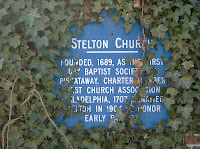The puritan Thomas Watson said, “Affliction may be lasting,
but it is not everlasting.” Peter reminds his readers that their suffering is
for “a little while” (1 Peter 1:6; 5:10). The trouble is that when we are going
though it, it seems like forever. In saying this we do not wish to minimize the
daily slog of unrelenting illness or the peculiar challenges of caring for an
invalid loved one. But in light of eternity even seventy years is the blink of
an eye. This raises the accompanying issue: If we are devoid of a theology of
suffering, we are in danger of marginalizing our expectations of heaven.
The root problem is the same in both cases: a preoccupation
with the here and now and the me and mine combined with the idea of getting
things right down here. If we conclude that we are now to experience total
healing, unfettered joy, unparalleled success, and freedom from pain, then why
be concerned about heaven? How did Paul handle his sufferings and encourage the
church to face theirs? Not by trying to produce heaven on earth but by
recognizing that for the Christian the best is yet to be. He took the moment
and put it in the larger context of God’s unfolding purpose, not only for time
but also in eternity. This perspective allowed him to write as follows:
Therefore we do not
lose heart. Though outwardly we are wasting away, yet inwardly we are being
renewed day by day. For our light and momentary troubles are achieving for us
an eternal glory that far outweighs them all. So we fix our eyes not on what is
seen, but on what is unseen. For what is seen is temporary, but what is unseen
in eternal. (2 Corinthians 4:16–18)
Today there is death and tears, mourning and pain, but one
day these will all be a thing of the past.
When I was about twelve, I went on a camping trip with a
youth group in Royal Deeside. A group of us left the base camp to trek into the
hills. The backpacks were heavy, the journey long, and the amenities
nonexistent. But our leader kept saying, “Wait ‘til you see the view from the
top!” There were a number of occasions on the trek when I sincerely doubted
whether I would ever make the top to see the view, or that there would be
something worth seeing. But he was right, and the great panoramic view of God’s
creation took our breath away. To a boy, we concluded that the journey had been
worth it. While we hiked, our leader taught us to sing an old hymn, the words
of which have stayed with me through the years:
A few more marchings weary, then we’ll gather home
A few more storm clouds dreary, then we’ll gather home
O’er time’s rapid river soon we’ll rest forever
No more marching’s weary when we gather home!
The point is clear: No matter how tough the journey, we are
heading home.
—Alistair Begg, Made for His Pleasure: Ten Benchmarks of a
Vital Faith
Read more »
























